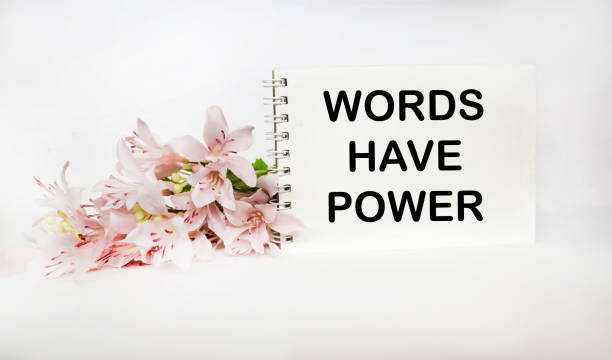In a world that often celebrates the bold, the dramatic, and the exaggerated, understated admiration feels like a breath of fresh air.
It’s not a grand declaration or an over-the-top compliment. It doesn’t shout from the rooftops or demand attention.
Instead, it whispers — gently, sincerely, and often with more emotional impact than any sweeping statement ever could.
This article explores:
- What understated admiration is
- Why it resonates so deeply in modern writing
- How writers use subtle language to express deep emotion
- Real-life examples from literature, screenwriting, and digital communication
Let’s dive into the quiet power of saying less — and meaning more.
What Is Understated Admiration?
Understated admiration refers to expressing praise, affection, or appreciation in a subtle, restrained way. It avoids hyperbole and drama, choosing instead to convey admiration through nuance, tone, and context .
Characteristics of Understated Admiration:
- Minimalist phrasing
- Subtle word choice
- Emotional restraint
- Context-driven delivery
Think of someone saying:
“You handled that really well.”
Rather than:
“OMG, you were absolutely incredible — like, superhero-level amazing!”
The first may seem simple — but it carries weight because it’s sincere, unembellished, and grounded in real feeling.
Why Understated Admiration Resonates So Deeply
There’s something inherently trustworthy about understatement. In an age where everything is amplified for attention — from social media posts to advertising slogans — sincerity stands out.
Here’s why this form of admiration hits differently:
1. It Feels More Authentic
We’re used to hearing exaggerated praise. As a result, we’ve become skeptical of it. But when admiration is understated, it feels genuine — like it comes from a place of truth rather than performance.
For example:
“I liked what you said earlier.”
feels more meaningful than
“That was life-changing and brilliant.”
2. It Invites Reflection
Understated admiration doesn’t hit you over the head. It lingers. You read it once, then again — and slowly realize just how much was meant by it.
3. It Shows Emotional Maturity
Someone who admires quietly often does so without expecting anything in return. Their words are chosen carefully, not for effect, but for meaning
Therefore, understated admiration isn’t just a style — it’s a sign of emotional intelligence.
Classic and Contemporary Examples of Understated Admiration
Great writing knows how to say a lot with very little. Here are some memorable examples across different forms of storytelling:
1. From Literature – Jane Austen
Austen mastered the art of subtle praise. Consider Mr. Darcy’s famous line:
“She is tolerable, I suppose…”
On the surface, it sounds dismissive. But within the context of the novel, it’s actually the beginning of a profound shift — a reluctant acknowledgment that he finds her compelling, even if he won’t admit it outright.
That quiet admiration becomes one of the most powerful romantic arcs in literature.
2. From Film – Her (2013)
When Theodore says to Samantha:
“You make me feel like I’m not alone in the world,”
He doesn’t shout his love. He doesn’t write a poem. He simply states a quiet truth — and it lands harder than any dramatic confession ever could.
3. From Poetry – Mary Oliver
Oliver often expressed deep reverence for life, nature, and human connection using minimal language. One of her most touching lines reads:
“Tell me, what is it you plan to do with your one wild and precious life?”
It’s not direct admiration — but the underlying respect for the reader is undeniable.
4. From Modern Fiction – Sally Rooney
Rooney’s characters rarely say exactly what they mean — which makes moments of quiet admiration all the more powerful. When a character finally says:
“I always liked the way you thought,”
It feels like a full confession.
How Writers Use Understatement to Convey Deep Emotion
Understated admiration isn’t just about being polite — it’s a deliberate narrative strategy . Skilled writers know that sometimes, the most impactful emotions are the ones left unsaid — or barely whispered.
Here’s how they do it:
1. Choosing Simple Words That Carry Weight
Writers avoid flashy adjectives and dramatic declarations. Instead, they rely on plain language that gains depth through context and delivery .
Example:
“She was good at listening.” Sounds modest — until you realize it’s the highest compliment in a world of distraction.
2. Using Silence as a Tool
Sometimes, admiration is shown through what isn’t said — a pause, a glance, or a moment of stillness after someone speaks.
In dialogue, silence can be the loudest form of praise.
3. Focusing on Behavior Over Words
Rather than telling readers that someone is admirable, great writing shows it through small actions:
- Holding the door open
- Remembering a minor detail someone mentioned weeks ago
- Sitting quietly beside someone during a hard time
These gestures speak volumes — and leave a stronger impression than any verbal compliment ever could.
Understated Admiration in Everyday Language
While often found in literature and film, understated admiration also plays a role in everyday conversations — especially in relationships, workplaces, and friendships.
Here’s how it shows up:
1. In Relationships
Instead of saying “I adore you,” a partner might say:
“You always know how to calm things down.”
Or:
“I like how you think about things.”
These aren’t overt declarations — but they carry real emotional weight .
2. At Work
A boss who values your work might not offer public applause — but they’ll say:
“Your approach made this easier than expected.”
Or:
“I always trust your take on these kinds of decisions.”
It’s professional, respectful — and deeply validating.
3. Among Friends
A friend who respects you might not gush — but they’ll say:
“You have a way of seeing things others miss.”
Or:
“I always learn something when we talk.”
It’s low-key — but high-impact.
Cultural and Gender Influences on Subtle Praise
How admiration is expressed also depends heavily on cultural norms and gender expectations .
1. Cultural Differences
In cultures that value humility and indirect communication (like Japan or Finland), understated admiration is common and highly respected.
Meanwhile, in cultures that favor expressive praise (like the U.S. or Italy), subtlety can be misread — mistaken for indifference or lack of enthusiasm.
2. Gender Expectations
Men, especially in traditionally masculine cultures, are often socialized to show admiration indirectly — through action rather than words.
Women, on the other hand, may be praised in soft terms (“kind,” “supportive”) rather than strong ones (“brilliant,” “powerful”).
As a result, understanding cultural and gender dynamics helps prevent misinterpretation — and lets us appreciate admiration in its many forms.
Why We Find It Hard to Recognize
Despite its power, understated admiration can easily go unnoticed — especially by those who expect more obvious expressions of praise.
Here’s why it’s easy to miss:
1. We’re Used to Over-the-Top Compliments
Flattery, hype, and performative praise are everywhere — especially online. Because of this, we sometimes overlook quieter, more sincere admiration.
2. It Requires Emotional Intelligence to Interpret
Understated admiration asks the listener to read between the lines. If you’re not emotionally attuned, you might miss the message entirely.
3. It Doesn’t Always Sound Like a Compliment
Some people admire in reverse:
“I didn’t expect you to handle that so well.” “I don’t usually enjoy working with people — but you’re different.”
These statements sound neutral — even slightly negative — but contain hidden admiration.
Therefore, learning to recognize understated praise takes practice — and self-awareness.
How to Express Admiration Without Overdoing It
Want to give praise that lands softly — but sticks deeply? Here are practical tips:
1. Be Specific, Not General
Avoid vague compliments like “You’re awesome.” Instead, point to something specific:
“I noticed how calmly you handled that situation — it helped everyone else stay focused.”
2. Use Restraint in Tone
Speak with warmth, but not fanfare. Let the weight of your words come from their sincerity — not volume.
3. Say Less Than You Feel
Sometimes, holding back a little makes your words more meaningful.
“I appreciate your perspective.”
can say more than
“You changed my whole view on this.”
4. Acknowledge Quiet Strengths
Praise what others overlook:
“You’re patient in a way that makes a difference.” “You listen better than most people realize.”
These affirmations feel personal and deeply felt.
5. Let Actions Back Up Your Words
Pair your understated admiration with supportive behavior:
- Giving credit where it’s due
- Asking for someone’s opinion
- Recommending them for opportunities
Because sometimes, the best admiration is silent — but visible in how you treat someone.
Frequently Asked Questions
Q: What is understated admiration?
A: It’s a way of showing respect, praise, or affection without exaggeration or loud declarations — often through subtle words or actions.
Q: Why do some people prefer to admire subtly?
A: Some find it more authentic, less performative, or culturally appropriate. Others are naturally reserved and express admiration through actions rather than words.
Q: Is understated admiration less meaningful than direct praise?
A: No — it’s often more meaningful because it feels honest and earned.
Q: How can I tell if someone admires me subtly?
A: Look for consistent support, thoughtful gestures, and rare but meaningful compliments.
Q: Should I respond to understated admiration?
A: Yes — acknowledging it shows you understand and appreciate the sentiment, even if it wasn’t shouted from the rooftops.
Final Thoughts: The Beauty of Saying Less
In a culture that often rewards loud voices and big personalities, understated admiration offers a quiet alternative — one that honors authenticity, maturity, and emotional depth .
It reminds us that admiration doesn’t always need to be shouted. Sometimes, it’s most powerful when it’s spoken softly — and meant deeply.
So next time someone says:
“I appreciate your input,”
or
“You did that better than most would’ve,”
Don’t dismiss it.
Because in those few, carefully chosen words — there’s a whole world of admiration waiting to be heard.





